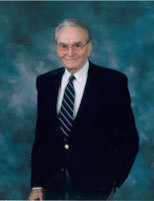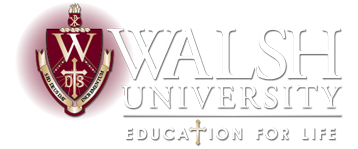Steve Gyalai - Class of 1978

When I think about Walsh, I can't help but think about my dad, Dr. Joseph Gyalai. He wasn't an alumni, professor or administrator or even a well known coach. He never took a class here. Never taught here, but yet, he knew many of the same people you did. He was a family physician and a graduate of postwar Germany's University of Munich in 1947. And beginning in the early 1960's all the way until his retirement in 1998, he was the primary caregiver to the Brothers of Christian Instruction and such well-known Walsh professors as Dr. Duncan. I consider him one of those unsung heroes - the type of guy that never wanted any credit - but always credited God. In fact, he would never talk much about it, but I know that it was God working through his skills and talents as a doctor that prevented one of the biggest tragedies from happening at Walsh. My dad was a great physician, but even he knew that it was something greater than his talents that prevented the loss of six of Walsh's beloved Brothers back in March 1969.
On March 13, 1969 a freak accident sent carbon monoxide fumes from the running engine of a community car into La Mennais Hall one night while its occupants were asleep. The garage in that building was located below the Brothers residence - eight of the Brothers were living there at the time. They were the schools' administrators and faculty members - the University's life blood and its heart. Imagine what would have happened if at one time Walsh had lost its President, Librarian, Registrar, Business Manager, Professor, and Superior of the Brothers? The Lamp called it a "combination of circumstances which imply Divine intervention" that cheated death. Six of Walsh's Brothers were rushed to the hospital in what has been described as life threatening condition.
The Lamp lists the combination of circumstances that saved their lives "the habitually open window of Brother Simeon…carburetor condensation which caused the running engine to stall with the fuel tank still not empty…the proctor who came seeking a set of keys…the special efforts of secretary Peg Hefke, a former nurse….and the ambulance driver who took Brother Farrell to Mercy instead of Aultman- a fortuitous error because the oxygen tank was near empty. It was a terrible accident that unified a campus and the wider community beyond Walsh's borders. The headlines carried the news, students openly wept and over 400 people attended a special mass. It is said that the college switchboard was overcome with calls by concerned friends and caring community members. Without the use of instant communication like email and the internet, crowds of students and faculty members gathered around hospital bulletins posted on campus that updated everyone on the Brothers recovery. And hundreds of offerings of flowers, letters and cards came pouring in. After all the Brothers were safely released, Brother Farrell is quoted as simply saying "God had more work for us."
For my dad - it was a more personal situation. These six Brothers were his patients and his friends. I was only 12 at that time but I can still remember his alarm and concern. My dad was the attending physician to all the Brothers during their recovery at Aultman Hospital. Through my dad, the hospital administration opened the newly constructed floor, Memorial Four North, a month earlier than planned just for the Brothers so that they could receive the intensive care they needed. They were the first and only patients on the floor at that time.
I don't think the Brothers ever forgot his care. When I was a student in 1974, they treated me warmly by name and welcomed me to campus. When my dad retired in 1998, he didn't want a lot of fanfare. But he did accept an invitation for a special dinner hosted by the Walsh Brothers in their residence. It was just my mom, dad and me. We shared a touching moment when our hosts presented our family with a beautiful oil portrait of my dad painted by one of the Brothers. It's a gift that I'm particularly grateful to have now that he has passed away. It reminds me how closely woven our lives are and to remember to be grateful for all of those who care for us. Not just our family and friends, but those unsung heroes who touch our lives, with their compassion, care and most of all, with their prayers.
Dr. Joseph Gyalai (1924-2008) began his medical education in 1942 in Budapest, Hungary. In 1944, he was forced by the Germans to finish his education in Munich, Germany at the University of Munich. In 1950, Dr. Gyalai and his wife Kathleen came to America in 1952. He was drafted into the Korean War that same year as a Captain with the US Army Medical Corps. He spent a year on the front line attending to critical care soldiers. While there, he helped to develop a hospital for the South Koreans before he was transferred to manage the Camp Tokyo Hospital in occupied Japan. Dr. Gyalai was honored with the prestigious Bronze Star, the fourth-highest combat award of the U.S. Armed Forces, for meritorious service for his development of the South Korean hospital. Dr. Joseph Gyalai and his family moved to Canton in 1956 where he served his patients until his retirement in 1998.
